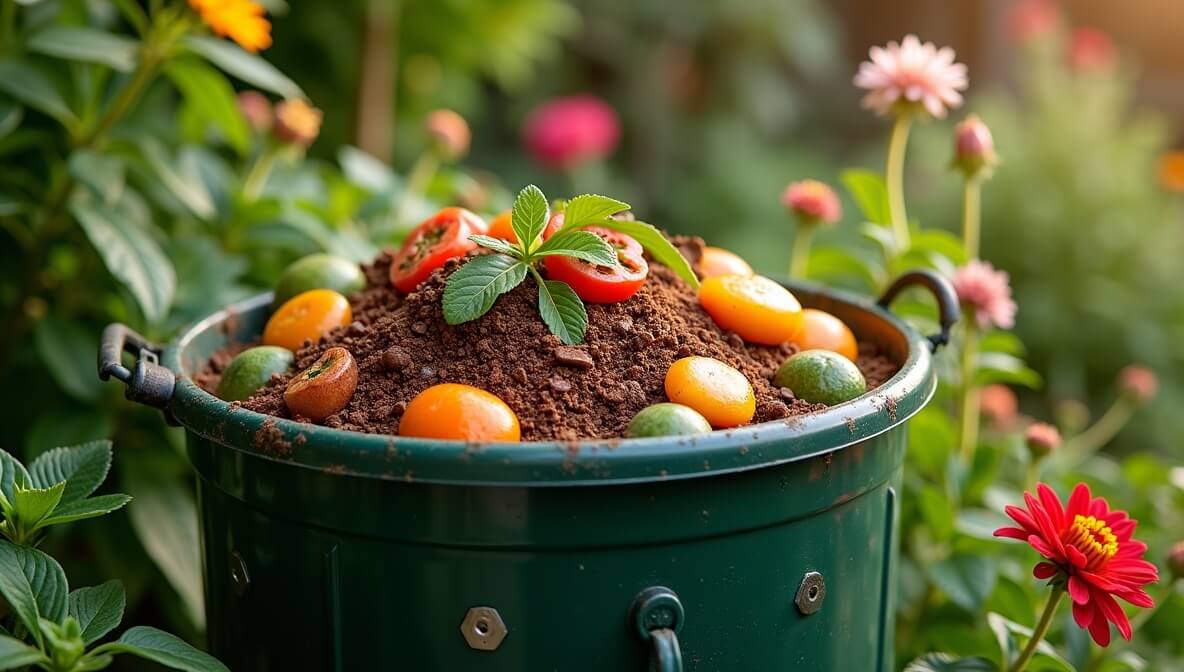Composting is one of the most powerful — and accessible — tools we have to fight landfill overflow, climate change, and soil degradation. By transforming everyday organic waste into nutrient-rich soil, composting turns trash into treasure, helping to close the loop in nature’s cycle.
Whether you live in a suburban home or a small apartment, composting is a low-cost, high-impact habit that promotes environmental health and individual responsibility.
Why Composting Matters
Globally, we waste an estimated 1.3 billion tons of food annually — much of it ends up in landfills, where it doesn’t just disappear. Instead, it breaks down anaerobically (without oxygen), releasing methane, a potent greenhouse gas with 25x the warming power of CO₂ over a 100-year period (EPA).
According to the United Nations Environment Programme (UNEP), food waste accounts for 8–10% of global greenhouse gas emissions.
Composting Offers a Simple, Scalable Solution:
- It uses oxygen to break down waste aerobically, preventing methane.
- It transforms waste into valuable, fertile compost, reducing reliance on chemical fertilizers.
- It lowers garbage collection costs, easing the strain on municipalities and taxpayers.
Composting supports circularity — instead of treating waste as an endpoint, it becomes part of a regenerative process.
Key Environmental Benefits of Composting
1. Reduces Landfill Volume
- Compostable materials — including food scraps, leaves, and paper — can make up 30–50% of household trash. Diverting them from landfills frees up space and extends landfill lifespans.
2. Lowers Greenhouse Gas Emissions
- By avoiding anaerobic decomposition, composting significantly reduces methane emissions. Studies show that municipal composting programs can cut citywide landfill emissions by over 20%.
3. Improves Soil Structure and Fertility
- Compost improves soil aeration, nutrient retention, and microbial activity. Healthier soil:
- Grows more nutrient-dense crops
- Retains moisture longer (important in drought-prone areas)
- Prevents erosion
4. Reduces Chemical Dependency
- By enriching soil naturally, composting reduces the need for synthetic fertilizers, which often leach into waterways and cause harmful algae blooms.
5. Builds Environmental Literacy
- People who compost become more aware of:
- What they consume
- How much food they waste
- How individual actions affect ecosystems
How to Start Composting at Home
You don’t need a huge yard or a green thumb. Composting is flexible and adaptable. Here’s how:
1. Pick Your System
- Backyard composting bin or pile – For gardens and green space
- Indoor kitchen bin – With carbon filters to control odor
- Bokashi fermentation – Ideal for meat and dairy scraps
- Vermicomposting – Uses worms (typically red wigglers) to break down scraps, great for indoors
2. Know What to Compost
- Compostable:
- Fruit and veggie scraps
- Coffee grounds and filters
- Eggshells
- Tea bags (non-synthetic)
- Yard waste (leaves, grass)
- Shredded cardboard/newspaper
- Avoid:
- Meat, fish, dairy (attracts pests)
- Oily foods and sauces
- Pet waste (unless processed through specialized systems)
- Diseased plants or pesticide-treated materials
- Bonus Tip: Keep a countertop bin lined with compostable bags for convenience.
- For more step-by-step guidance, visit NRDC’s Composting 101.
Composting Beyond the Home
While personal composting is impactful, larger-scale efforts amplify results:
- Municipal Composting Programs
- Many cities and towns now offer:
- Curbside pickup for organic waste
- Drop-off locations at farmers’ markets or community centers
- Community gardens that use shared compost systems
- Community-Driven Projects
- Volunteer-led composting co-ops, school garden initiatives, and neighborhood drop bins make composting accessible for apartment dwellers or low-income communities.
- For more community-based success stories, check out:
- RocketPages’ food bank feature — it highlights how local networks improve food systems, reduce waste, and enhance public health.
Composting and Youth Education
Teaching children to compost can:
- Build eco-literacy early
- Connect them with food systems and agriculture
- Foster a sense of environmental responsibility
Youth mentorship programs are beginning to incorporate composting and sustainability into leadership training. For inspiration, explore: Mentorship Matters: Inspiring Future Leaders
Final Thoughts
“Composting is not a waste management strategy — it’s an act of regeneration.”
It’s a tangible way to care for the planet from your own kitchen. Whether you’re feeding a backyard garden or simply reducing your weekly trash, your banana peels, coffee grounds, and autumn leaves can become life-giving soil instead of toxic methane.
Small, consistent actions matter. Composting empowers individuals, schools, and communities to reconnect with the natural cycle, reduce environmental harm, and build a more sustainable future.
Resources & Further Reading
